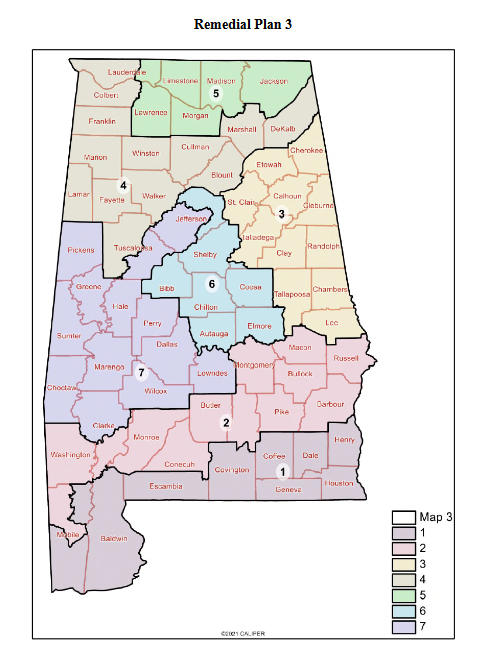By Taylor Sanchez
In a victory for voting rights advocates, the US Supreme Court on September 26, refused a to initiate a stay in the ongoing racial gerrymandering case out of Alabama. According to the US Supreme Court “The application for stay presented to Justice Thomas and by him referred to the Court is denied.”
With no further appeals allowed at this stage of the case, the three-judge panel on Thursday
chose one of three maps proposed by the appointed special master. According to U.S. Circuit Judge Stanley Marcus, U.S. District Judge Anna Manasco and U.S. District Judge Terry Moorer “Mr. Ely’s performance analysis underscores what we have explained, and the Supreme Court has found: that voting in Alabama is extremely racially polarized. See Milligan Doc. 295 at 32 & tbl.4 (predicting that in all districts other than Districts 2 and 7, the Black-preferred candidate will never win a single election, and that every loss is by more than 29%).
The new configuration of Alabama’s will maintain a Black majority district centered in
Birmingham and create a new Black opportunity district centered around Mobile. In choosing map 3, the three-judge panel noted that it will limit county splits, maintain the majority of Mobile in one district, while also allowing Black Alabamians the chance to elect the candidate of their choice. According to Mr. Ely’s analysis, the new district would have elected the candidate of choice in sixteen of the last seventeen house elections.
The three-judge panel has ordered the new congressional districts to be enacted immediately, and will go in to effect in the 2024 congressional election. With the Supreme Court wary of racial gerrymandering, the 5 th Circuit Court of Appeals placed a stay on an additional Black opportunity district in Louisiana, making a similar argument that it is too close to the next election. Whether this will be allowed to stand will come down to the US Supreme Court, but it is very possible that they will allow the district court ruling creating a new Black opportunity district go in to effect in Louisiana.
Elsewhere in the US South, racial gerrymanders are being challenged in Florida state court and federal courts in Georgia, with plaintiff’s arguing in Georgia that racial gerrymandering was utilized to dilute Black voter strength in the Atlanta metro.
Almost halfway through the decade, challenges are still occurring, and the lines of competition will look very different going in to the 2024 election.



